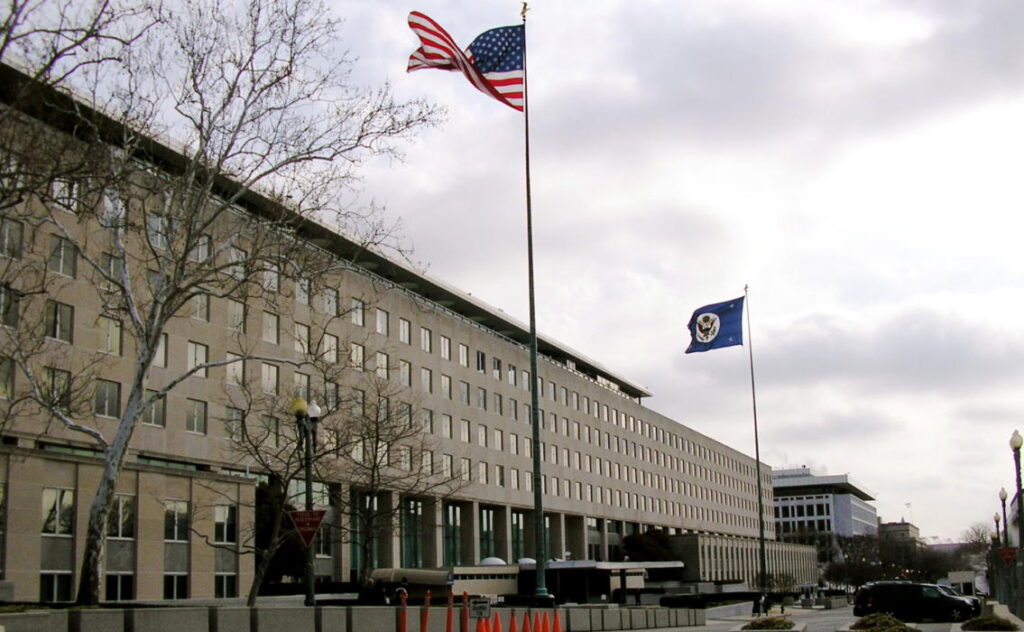.
Stakes at the table of international diplomacy are set higher as Saudi Arabia is extremely angered by US rebukes on a Syria intervention. Kerry and Lavrov have joined to find a diplomatic solution to the civil/sectarian war in Syria where the Assad regime will be still in place as talks begin. President Obama and Iranian president Rouhani are on a path to resolve the nuclear crisis in order to lift crushing UN sanctions. On domestic troubles, Obama has gained a few months breathing space as the government shutdown is ended and debt ceiling raised.
Saudi King Abdullah’s warning on interference
RIYADH, Saudi Arabia (Gulf News) – Leader stresses mutual respect as basis for international diplomacy – Saudi King Abdullah Bin Abdul Aziz Al Saud has warned that the Islamic nation would not allow anyone, regardless of their status, to interfere in its affairs or undermine its security.
“We want to tell the world that we are extending our hand in respect of all divine religions and in an initiative that shuns hatred and violence and indicates that Islam is a religion of purity and moderation. If this be our case with non-Muslims, then our duty towards Muslims is to reject differences and rivalries between them.”
Dialogue between Islamic sects is the proper way to understand one another.
“We praise God for everything that we agree upon, but our disagreements should not be used as a way to destroy the unity of the Islamic nation.”
King Abdullah said that the Islamic nation never compromised on its religion, morals or values.
“We do not allow anyone regardless of who he is to undermine the sovereignty of our countries or interfere in our domestic or foreign affairs,” King Abdullah who assumed power in 2005 said.
“Let the whole world be aware that we respect them and appreciate their contributions to humanity throughout history. However, there is no option for anyone trying to fret, according to his narrow or interests. We are a nation keen on the safety and integrity of its religion and countries and on dealing with others on a peer-to-peer basis.”
Saudi rejection stuns UN Security Council
Continued below the fold …
The Islamic nation hopes that respect among counties is the “wide open way” towards mutual interests and benefits, King Abdullah said.
“Our belief is based on our recognition that this world is a homogeneous unit in an era where hatred is renounced and authoritarianism and arrogance are rejected. To those who appreciate this stance, [we say that] our hearts may accommodate all concepts and standards of friendship. However, to those who hold a different view, [we say] the choice is yours, but we do have our own options to preserve our pride and the dignity of our honourable people.”
Muslim leaders performing Haj this year included President of Turkey Abdullah Gul, President of Pakistan Mamnoon Hussain, President of Sudan Omar Al Bashir, President of Mauritania Mohammad Ouled Abdul Aziz, President of Guinea Bissau Manuel Serifo Nhamadjo and the Prime Minister of Jordan Abdullah Al Nasoor.
- ○ Bringing Syrian War to Lebanon – Wissam al-Hassan Assassinated by Car Bomb Oct. 20, 2012
○ Push by Saudi Clerics for an Islamic State in Al-Sham (Syria) Jan. 4, 2013
Saudi rejection stuns UN Security Council
Saudi Arabia’s angry rejection of a Security Council seat one day after winning it is a United Nations first that stunned members of the body. [Saudi Ambassador Al-Mouallimi accepts seat at UN Securiy Council – video] But diplomats said there had been no official notice from Riyadh of its refusal to take up the seat on January 1. It was possible the kingdom could change its mind, they added.
“This is totally unexpected. We all had to look into the council history for a precedent and there is not one,” said a Security Council diplomat, speaking on condition of anonymity.
“Campaigning and securing a seat normally takes years of preparation which makes the announcement even more surprising. Work mechanisms and double-standards on the Security Council prevent it from carrying out its duties and assuming its responsibilities in keeping world peace,”
the Saudi foreign ministry said in a statement explaining its move.
“Therefore Saudi Arabia… has no other option but to turn down Security Council membership until it is reformed and given the means to accomplish its duties and assume its responsiblities in preserving the world’s peace and security.”
Meanwhile, Russia sharply criticised Saudi Arabia for rejecting membership of the UN Security Council, slamming the kingdom’s “strange” argument.
Riyadh’s frustration is mostly directed at Washington, its oldest international ally, which has pursued policies since the Arab Spring that Saudi rulers have bitterly opposed and which have severely damaged relations with the United States, Saudi analysts have said.
Saudi Arabia has also been angered by a rapprochement between Iran, its old regional foe, and the US, which has taken root since President Barack Obama spoke by telephone last month to the new Iranian President, Hassan Rouhani.
Perpetuated conflicts
Citing the Security Council’s failure to resolve the Israeli-Palestinian dispute, take steps to end Syria’s civil war and to stop nuclear proliferation in the region, Riyadh said the body had instead perpetuated conflicts and grievances.
- ○ HRH Prince Saud Al-Faisal Foreign Minister of Saudi Arabia – Statement to the 62nd Session of the U.N. General Assembly (2007)
○ Prince Bandar, Saudi intelligence chief engaged in Shia rivalry played out in Syria, Iraq, Lebanon and Bahrain.
○ UN losing credibility after failing to resolve crises: Turkey
